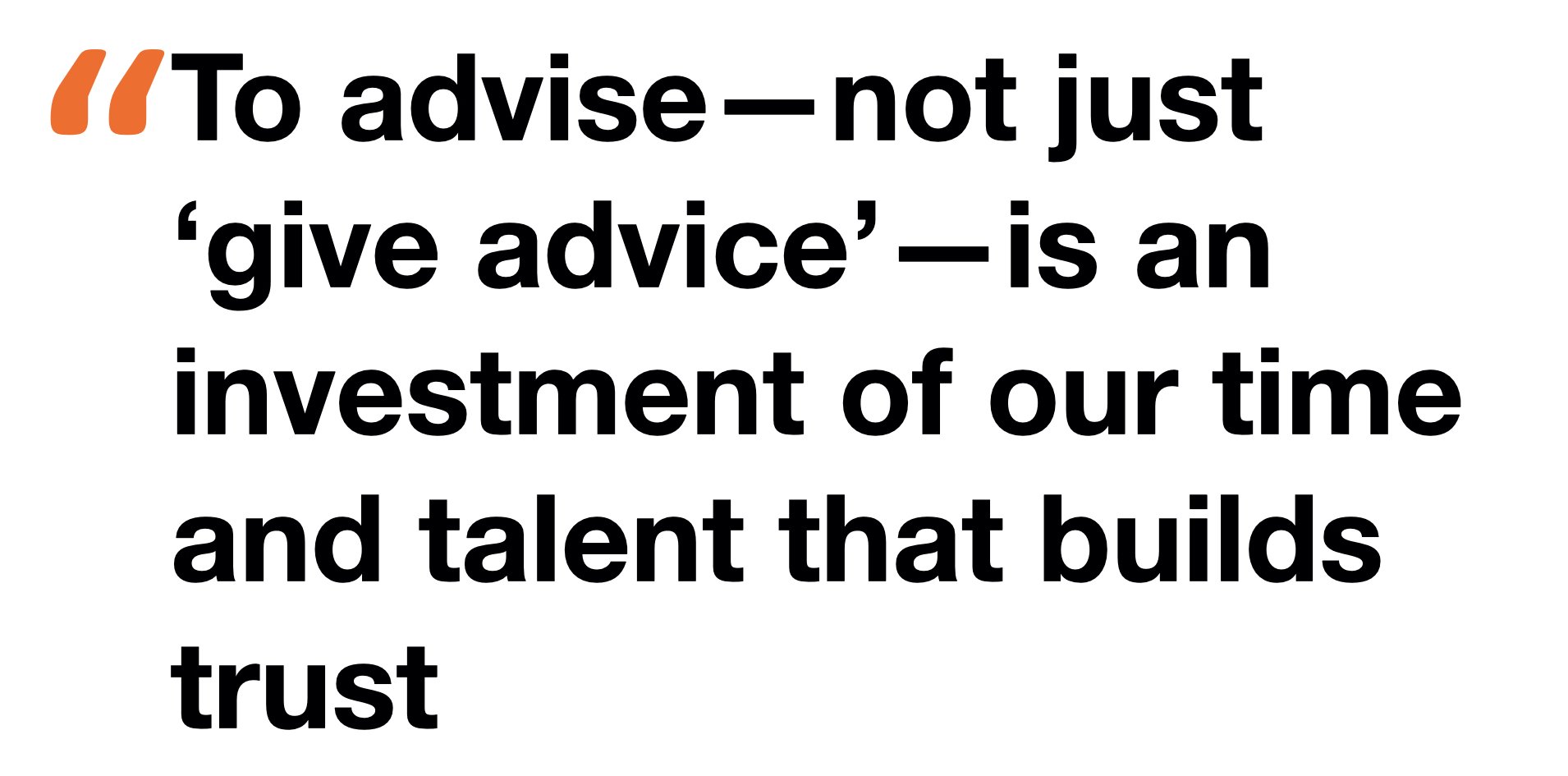Word of Wisdom: Advice
“Advice is a dangerous gift, even from the wise to the wise, and all courses may run ill.” J.R.R. Tolkien
Artificial intelligence (“AI”) and the prospect of the emergence of Artificial General Intelligence (“AGI”) has dominated headlines, podcasts, hearings and debates over the past months (personally, I’ve consumed my fair share of all of them).
But it’s not just the technological capabilities AI tools offer that are demanding attention; the political, sociological, philosophical, and theological implications of widespread adoption of AI are generating significant enthusiasm…and anxiety.
To wit, many leading AI researchers and entrepreneurs have now made disconcerting public statements, including signing on to statements and open letters commenting on the existential risks they perceive and recommending significant steps—everything from regulation to coordinated global pauses on AI development.
In one, the advice is that “powerful AI systems should be developed only once we are confident that their effects will be positive and their risks will be manageable”. In another, it is that “mitigating the risk of extinction from AI should be a global priority”. Pretty vehement suggestions; many shoulds are involved.
Of course, this advice is coming from individuals and institutions who have spent years—decades—making this tech a reality…and in the process have received billions of dollars in grant funding and venture capital. Whatever the truth behind claims of coming calamity, the motivations behind the advice are murky. Is it actual altruism? Genuine concern? Or merely marketing, myth-making, and monopolistic moat-building?
Perhaps therein lies some of the peril of advice: the unknowns underlying the purveyor’s purpose.
A look into the word’s origin lays some of the foundation for an exploration of this. It comes into English usage from the French avis, meaning ‘opinion’ or ‘view’; the phrasal usage was ço m'est à vis—‘it seems to me’. This had its roots in the Latin visum (‘view’) and videre (‘to see’). We can also see in this the development of our word vision.
Advice, then, is essentially one’s viewpoint on a given item. Not a bad thing, if the giver has a particular level of relevant experience or expertise. But the limitation is obvious: the viewpoint, or ‘point of view’, may not fit squarely in another’s situation, given the innumerable variables outside of ‘view’ (history, personality, desires, constraints).
Moreover, because advice is a thing—a noun—it must be ‘given’. Just maybe, that’s where the danger, actual or perceived, comes into play. Why is it being given? In love? Out of a desire for control or self-justification? For amusement or avoidance?
Indeed, many of us have experienced someone ‘giving us advice’ as a cop out, an alternative to a more significant investment of time, energy, and relationship with us. “Let me give you some free advice, kid” is not without value (depending on the actual content of the ‘advice’), but it also is not far removed from a brush off. When we receive brief, ‘free’ (read: cheap) advice, we’re not getting a person’s best engagement with us and our particular situation.
So, our relationship with ‘advice’ is complicated. This is borne out by a quick search of ‘quotes about advice’.
The ancients accepted its reality but counseled restraint: “no enemy is worse than bad advice” (Sophocles); “whatever advice you give, be short” (Horace). Some modern leaders avoid it, either intentionally (“I give opinions, not advice” [Lou Holtz]) or with regret (“I haven’t been faithful to my own advice in the past” [Billy Graham]). And some social commentators eschew it entirely, either cynically (“no one wants advice, only corroboration” [John Steinbeck]) or comically circular (“the advice I would give to someone is to not take anyone’s advice” [Eddie Murphy]).
What then? As friends, fathers, leaders, and influencers, how do we transfer to others the wisdom (also from the same Latin root meaning ‘to see’) that we’ve acquired and discerned…and that sometimes is requested by those around us?
I would submit to you that we focus on ‘advising’ rather than ‘giving advice’. That might at first blush seem like empty wordplay, and while the difference is indeed grammatical at one level, it is conceptual at another.
To advise shares the same etymological root (‘to see’), but it is a verb—an action, not a thing. Advice, as we’ve seen, is a noun, a thing, something which can be gifted or granted, wielded or withheld, taking the form of everything from a tool to a toy, from assistance to accusation. And it is the recipient’s response that often determines its ultimate form.
When we advise—when we invest greater levels of energy and engagement in the action of advising rather than the settling for the more efficient act of dispensing advice—we take steps to remove the ambiguity of our intentions; we make clearer our motives…and their merit.
To advise, to take action in ‘seeing’ for another, requires that we know them, that we listen to them, that we walk with them and stand with them so as to view all of the various considerations from their perspective—a more taxing enterprise than simply viewing them from ours. To advise (from the Old French aviser: ‘to reflect, deliberate, consider’) is an investment of our time and talent that enriches both the advisor and advisee in a relational way.
Advising is how a father invests in his son, because it is how the Father invests in his sons.
A fatherly advisor knows his son, taking the time to know his history, to know his nature, to know his circumstances. He walks with him, communes with him, listens to him and responds to his dreads and desires thoughtfully. He is patient with the process, and even when the son casts off counsel, a father is ready to redeem the repercussions and reiterate the perspective that past experience provides.
True advising is permission-based, but perpetually on offer. And because it is relational, it is always available, regardless of how far the paths have diverged.
Advice is a thing, to advise is an interpersonal connection of one being with another. Perhaps that move—as small as one letter that transforms from an object to an action—is representative of the tiny step that will move us from demanding dad to faithful father.
Let’s lean into that today. And don’t worry, I commit to you that I’ll take my own…er, advising on that.
“I advise you to buy from me gold refined in the fire…” Revelation 3:18



